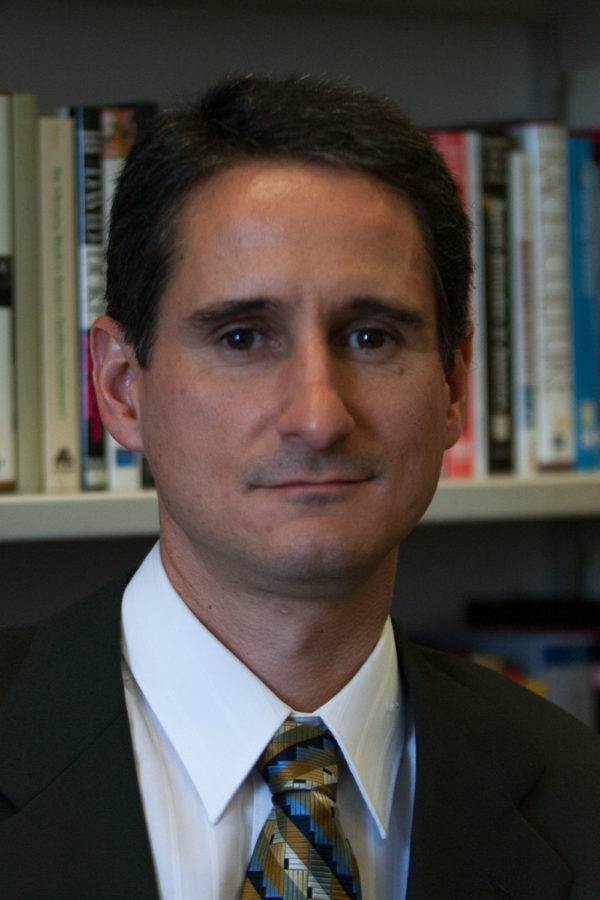The product of ‘racial pressure cooker’
September 17, 2015
By Cheyene Miller
Growing up in New Orleans during a racially tense period of American history, UK political science professor Stephen Voss witnessed first-hand the role race and ethnicity play in society.
“Race relations were very tense,” Voss said of his hometown. He was born in 1968, the year of the Martin Luther King Jr. assassination.
“I grew up in a racial pressure cooker,” Voss said.
Voss dealt with racial tension on a personal level. His father ran with a crowd composed of whites and Hispanics that sometimes clashed with some of the black teens in the neighborhood, though he said the violence between them consisted only of fist fights.
“They were gangs in a sense that we would laugh at today,” Voss said. “Maybe one of them had a switchblade.”
He described his overall experience growing up in a racially diverse setting as positive, but said some who grow up in such circumstances don’t necessarily become more tolerant.
Voss spoke about current ethnic disputes in American society, and said immigration, as a political issue, had more to do with perceived threats to one’s culture than money. He said usually the more people become assimilated with people of different cultures, the more the hatred tends to fade.
“People have a harder time face-to-face being nasty than they do from a distance,” Voss said.
Since his days in New Orleans, Voss earned his bachelor’s degree at Louisiana State University, where he studied print journalism and was the editor-in-chief of the student newspaper.
During his time as a journalist he spoke one-on-one with former vice president Al Gore, and was on the scene when former president Ronald Reagan made the infamous blunder: “Facts are stupid things.”
Formerly a liberal Democrat, Voss is now an independent and describes himself as centrist with a “basic early Generation X distrust of authority.”
After his time as a journalist, Voss realized his love for political analysis and earned his Ph.D. in government at Harvard, eventually joining the UK staff in 1998.
UK Public Relations last year estimated Voss had been referenced more than 1,000 times in various news sources last year alone, mostly for his political commentary and analysis of the 2014 Senate race.
He has been quoted in major publications like the New York Times and Washington Post, and was once referred to as the “rock star of the political science department” at a student government debate.
Voss now passes on his knowledge to students in eccentric ways such as running across the room, jumping up on desks and switching into characters.
“I don’t tell a story unless I can pull a whole bunch of learning outcomes out of it,” said Voss. “That’s always my default, is to be an elitist and make sure that students who really are here to learn can learn as much as possible.”
































































































































































